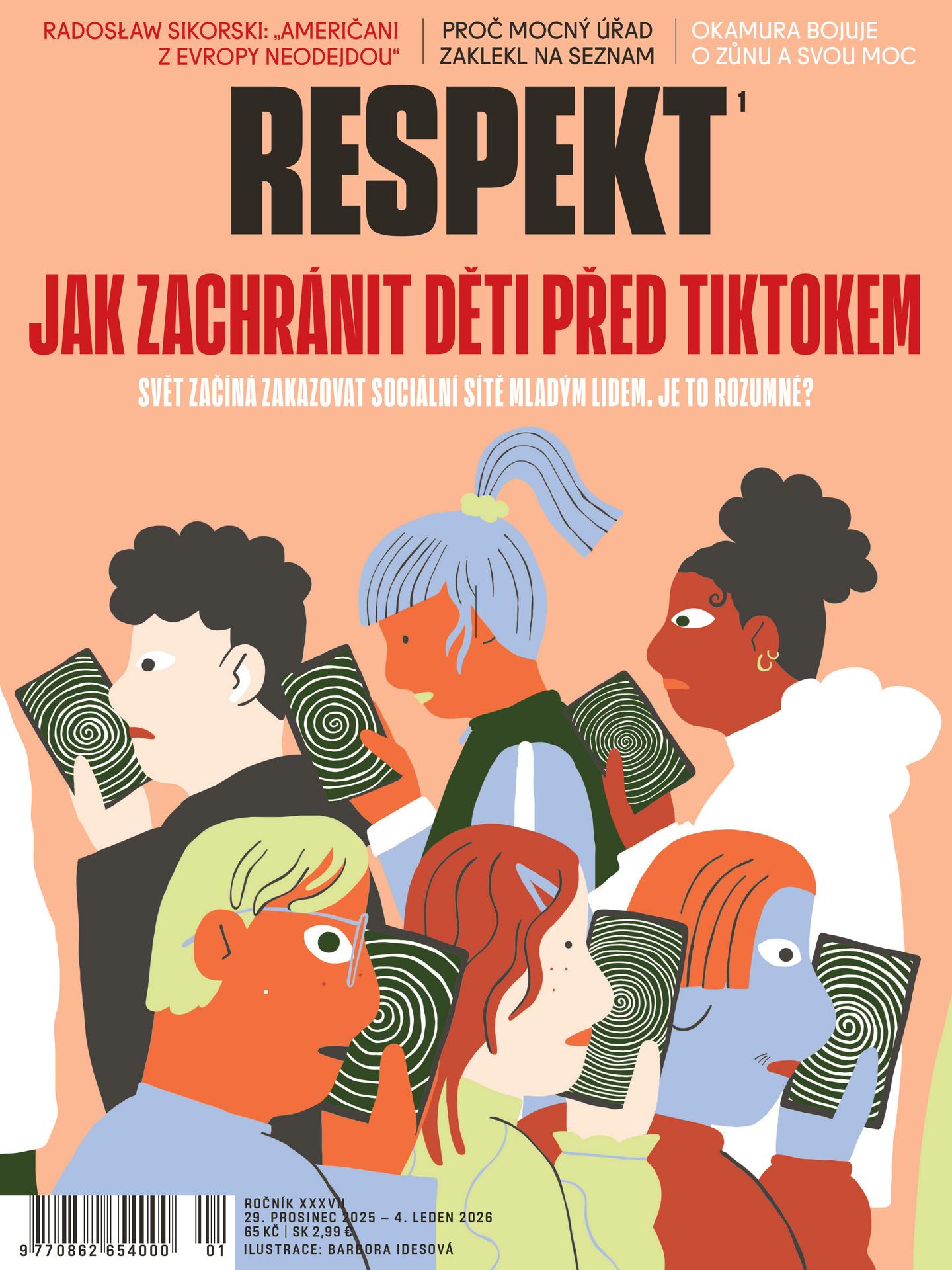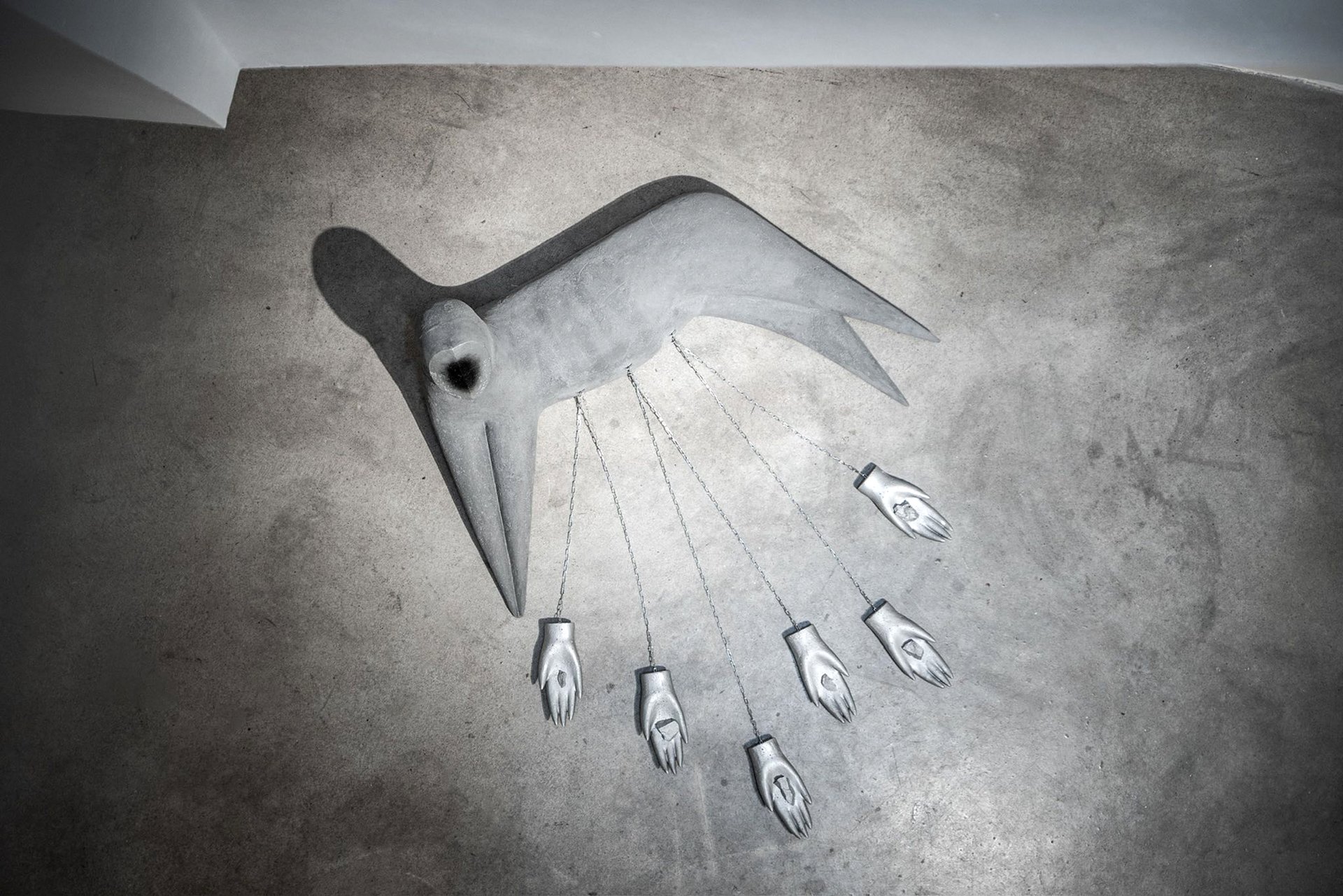Not Only Corruption But Censorship As Well
Half a year ago, the Prime Minister Miloš Zeman announced his intention to liquidate the weekly magazine Respekt because of an article about corruption. The government has even approved a special resolution for this purpose.

Half a year ago, the Prime Minister Miloš Zeman announced his intention to liquidate the weekly magazine Respekt because of an article about corruption. The government has even approved a special resolution for this purpose. The intention has clearly not been accomplished successfully and both the justice and the mass media stopped occupying themselves with the cabinet's assault on the weekly magazine. If this is to be the end of the whole case, it is still necessary to determine the winner.
The End Justifies the Means
It all began with an innocent article „Something Mean and Vulgar“, in which Respekt tried to describe in general the risk of corruption in a democratic society on the occasion of a Prague conference of Transparency International, a non-governmental organization. Among others, the magazine used the example of Czech Social Democratic Party, which won the elections with its promise that it will put an end to corruption, however, its government succumbed to corruption two years later. Such an interpretation became a reason for Zeman and co. to declare war on Respekt. According to the plan declared by the Prime Minister, the weekly magazine was to be ruined by an onrush of legal actions and requests for financial satisfaction from individual Ministers.
And yet the criticizing comments on the government were based on completely clear facts. It is true that Zeman's cabinet took some important steps in struggle against corruption; above all, he transparently privatized big banks. However, the campaign ended in June 2000 when IPB was sold once again. This was followed by steps, which, on the contrary, opened the door to corruption. Suspicious public procurement contracts were awarded without correct selection procedures (the highway to Ostrava, the Internet at schools, the tender for fighter planes, work-out of the Russian debt); scandalous privatization was taking place (chemical industry, electric power industry). Manipulations and law evasion in replacement of inconvenient officials became a rule (most recently, these practices affected the Central-Bohemian school inspector). With its neurotic response to the commentary of Respekt, the government admitted that it was at a loss as to what to do about corruption. And this is the better possibility because in the given situation, it is not possible to rule out the possibility that some Ministers have already started using corruption for attaining their own power and financial goals.
In spite of that, Zeman's threat of legal actions and liquidation fulfilled its purpose. There were no further speculations in the local mass media about whether his government might be a government of corrupted officials and the Prime Minister himself and his Ministers did not have to explain anything in this respect. Even the House of Deputies of the Parliament recognized the cabinet's defense against unpleasant questions as having been correct when Václav Klaus, the Chairman of the House of Deputies, supported the attitude of Zeman with an open letter and the remaining MPs with silence.


Justice: It Was Not Libel
Instead of politicians, the justice started to occupy itself with the case. The announced civil actions against Respekt, in which the Ministers were to request indemnifications amounting to millions for a sentence about their „corruption behavior“, were not filed because the members of the government were discouraged by the uncertain investment into high legal costs. However, the Ministers Karel Březina and Miroslav Grégr really filed a report on the commission of criminal libel against the author of the article. The police investigated their report and decided not to proceed with the case, and the police verdict was confirmed by the prosecuting attorney for Prague 1 in February. Therefore, the logical conclusion is as follows: It is not a libel to claim that the Ministers of the current Zeman's government support corruption with their behavior. At least from February, everyone can say this even in the Czech lands quite publicly and ask the Ministers why they behave so. There should be no risk in this.
Governmental support of corruption is a grave matter. In spite of that, even after the reports on the commission of a crime filed by the government had been rejected, it has not become the topic of articles in newspapers or an election campaign. Silence on the part of the parliamentary parties is not much surprising. The simple thought alone that Social Democrats might be the ones with whom they will be putting together the new cabinet after elections may be a sufficient reason for politicians to behave cautiously. Why should they spoil the relations beforehand?
From time to time, the mass media mention a case of corruption behavior of one of the Ministers (see the exemplary work of the reporters from MF Dnes about the strange business activities and the car fleet of the wife of Minister Gross). However, there has not been a word mentioned about the suspicion that the government as a whole supports corruption in the Czech lands. This cautiousness can be understood when we sum up the benefits and costs of the entire dispute over the article in Respekt.
Censor Never Sleeps
The dispute did not cost the government anything at all. The government paid lawyers their fees from the money of taxpayers and the Ministers played personified offended innocence in front of the television cameras several times. The cabinet was not successful in the legal dispute but it was no almighty disgrace.
As concerns Respekt, the agenda of the entire case, including legal consultations and interrogations at the police department, consumed many working hours. For an unpopular magazine, it became suddenly much more laborious to obtain information from public authorities. However, all this was „compensated“ by the increased interest of the public. The other risks were much worse. For example, can a publisher continue to be interested in publishing a magazine, if this activity necessarily gets him into a conflict with the government? Is there any point at all in writing into such a magazine, if you can then rely on animosity of those, who are loyal to the ones currently in power in the country? And can a political weekly magazine survive at all, if all mass media, which have something in common with the government, ignore it? Some colleagues journalists, particularly Karel Steigerwald in MF Dnes, Martin Fendrych in Týden and Václav Žák in Literární noviny, also concluded that it was not worth taking similar risks in publication of one's own opinions: if Respekt had published something that was „a misformulated sentence“ in their opinion, then it has to blame itself for the consequences.
Fortunately, such an opinion did not prevail and the risks were overcome successfully thanks to the support of especially the German and American public and also, partly, the Czech public. The fact that the publisher of Respekt is not financially or otherwise dependent on the favor of local politicians has also played an important role. In spite of that, a journalist or publisher with a sense of responsibility can see a key threat in connection with Zeman's aggression: not everyone who gets into a conflict with the government in the Czech lands can rely on foreign support. Therefore some other guarantee, that is, to avoid a conflict with the government, is more important for the future of the given mass medium or job.
Thus, when we summarize the course of the dispute between the government and Respekt to date, we get a not very encouraging result for journalists. The power has taken steps against Respekt as a censor and its steps were successful to a considerable degree because everyone can see that Respekt defended its position only thanks to a favorable coincidence - Zeman's outburst of anger raised a scandal, which captured the interest of even the foreign mass media. As concerns the other party, another similar assault would not cost the government anything and therefore it can be presumed that the government will repeat it, if necessary. This is why, even today, it is not safe to ask whether it might be a cabinet of corruptionists that governs the country. You will not be imprisoned but you can easily lose your job.
We Still Have No Weapon
Just as corruption, it is also necessary to reject censorship as well as all other attempts at restricting the freedom of expression or the citizens' right to information as defined in the Constitution. With its assault on the article „Something Mean and Vulgar“ published in Respekt, the government clearly jeopardized these rights on the part of the employees of the weekly magazine and its readers in spite of being unable to contest successfully the truthfulness of the published information, and so the only cause of the furious outbursts was apparently the fact that the Ministers were strongly reluctant to face more stringent criticism.
Respekt tried to defend itself by using the available legislation but did not attain much success. The final answer was the verdict of the district prosecuting attorney for Prague 1, who pointed out to Respekt that the articles of the Criminal Code did not defend the freedom of expression (and the same goes for the Civil Code). Therefore, in the Czech Republic, the freedom of expression cannot be effectively defended against assaults similar to the Zeman's ones.
It is a remarkable conclusion of the legal initiative of Respekt. The Czech state has also undertaken to defend the freedom of expression in the European Convention on Human Rights and yet its bodies of justice claim that they do not have any legal instrument for that.
This is why it is necessary to create such an instrument and thus, last Friday, Respekt filed an application for this with Otakar Motejl, the ombudsman, whose job description includes defense of human rights (the letter is published on the website www.respekt.cz). If the ombudsman recognized the complaint of Respekt as a rightful one, he could propose the House of Deputies of the Parliament changing the Criminal Code so that it defends, among other constitutional rights, even the freedom of expression.
Pokud jste v článku našli chybu, napište nám prosím na [email protected].










